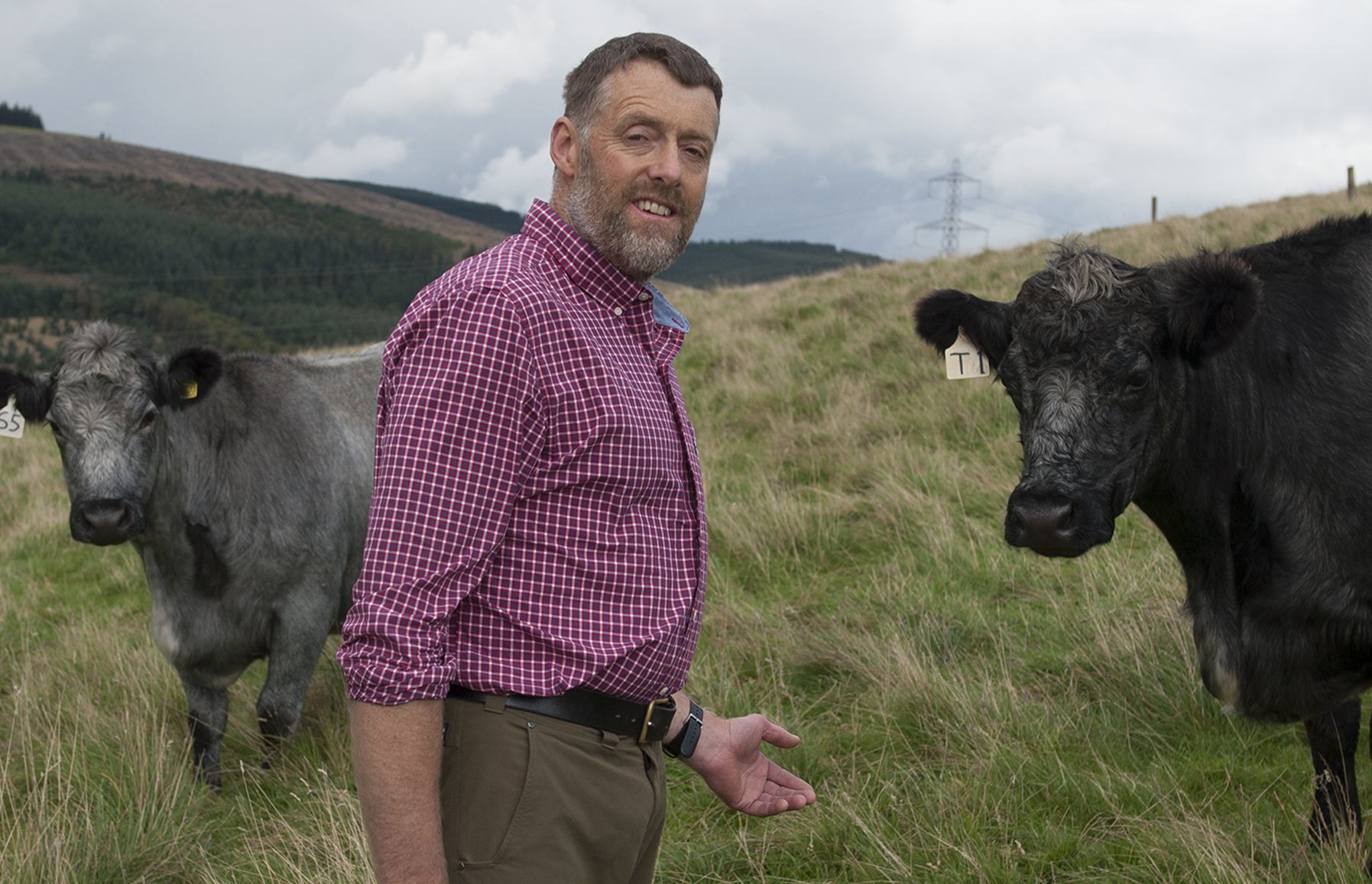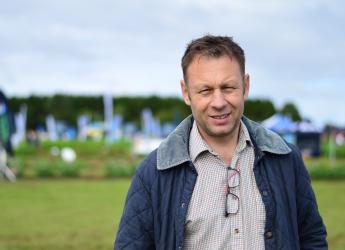Glensaugh
Glensaugh is managed as an upland livestock farm, just over 1000ha in area, with sheep, cattle and red deer, improved and extensive pastures, moorland, woodland and peatland. The Highland Boundary Fault divides Glensaugh into two distinct geological zones.
Glensaugh currently has c 17% woodland cover, which is being proactively managed and expanded – for carbon storage, biodiversity and other benefits – reflecting the ambitions of the UK and Scottish Governments. It has been a research farm for more than 80 years.
Agriculture is highly exposed to climate change – and farming activities also contribute to climate change through release of greenhouse gases into the atmosphere.
Agriculture and related land use contribute significantly to UK greenhouse gas emissions. The Scottish and UK Governments and UK Climate Change Committee have pledged to support the necessary changes in land use to achieve net zero and we need to progress with this as a matter of urgency. The James Hutton Institute’s research farms have long been at the forefront of innovation in land and agricultural practices, trialling and testing new farm methods, livestock and crops. Now, more than ever, they are needed to test and demonstrate transformative ways of managing our land.
Glensaugh is the home of our Climate-Positive Farming Initiative.
Climate-positive farming is a transformational approach to farming that achieves net-zero or even negative carbon emissions, whilst also protecting and enhancing the natural assets of a farm and ensuring long-term financial sustainability of the farm business.
A key to success is recognising the full societal costs and benefits (actual and potential) from the process of farming – producing food, livelihoods and other multiple benefits for nature and society.
- Climate-positive farming needs both innovations in technology and in ways of working.
- Testing and demonstrating results on the ground is also essential if farmers, policy-makers and organisations are to be persuaded to make climate-positive farming a priority.
- This is our fundamental philosophy here at Glensaugh.
Learn more about Glensaugh
Directors of our Climate-Positive Farming Initiative (CPFI):
Alison Hester
Senior Scientist and Baillie Gifford Entrepreneurial Research Fellow
Based in Aberdeen
T: +44 (0)344 928 5428 (*)
Professor Alison Hester FRSB FRSGS is a senior scientist and Baillie Gifford Entrepreneurial Research Fellow at the James Hutton Institute, UK. She did her Degree at King’s College University of London, PhD at Aberdeen University/CEH and a Royal Society Postdoctoral Fellowship at CSIRO Western Australia. Alison has over 30 years research experience (with c200 scientific publications and contract reports) and an international reputation in biodiversity, conservation and land management. Much of her research forms an integral part of large, interdisciplinary projects and she works closely with scientists, land managers, communities and policy-makers in different parts of the world. In recent years she has taken a lead role in bringing together and managing diverse teams of scientists in the highly interdisciplinary research area of natural capital and Ecosystem Services, both within the institute and through a range of international collaborations.
Dr. Mark Wilkinson
Senior Research Scientist in Catchment Hydrology
Based in Aberdeen
T: +44 (0)344 928 5428 (*)
Our Climate-Positive Farming Management Team:

Donald Barrie
Glensaugh Farm Manager: supported by dedicated farm team
Our Climate-Positive Farming initiative involves researchers from across the James Hutton Institute, together with external partners and collaborators. Please see our Research and Data highlight pages for information on specific projects.



